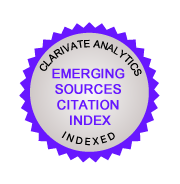BORDER SECURITISATION AND ECONOMIC FACILITATION: THE QUEST FOR FREE VISA AND OPEN-BORDER POLICIES
DOI:
https://doi.org/10.32890/jis2025.21.2.11Abstrak
In the context of Malaysia’s economic and border policies, two important developments have taken place. In 2023, the government decided to reopen the Wang Kelian free-flow zone in favour of economic development after its closure in 2015. In the same year, the government eliminated visa requirements to attract tourists from China and India. This study examines the two above mentioned case studies that illustrate the debates in the facilitation of entry for economic development and security concerns. Three findings are revealed. First, this article proposes the hypothesis that Malaysia’s migration control policies can be framed as tension between border securitisation and economic facilitation. From an enforcement perspective, border securitisation is undermined by the facilitation of legal entry in the quest for the state’s economic interests, as the abuse of legal entry facilities is prevalent. Second, security and economic interests may be harmonised through smart border control mechanisms, such as the Digital Arrival Card, data centres that evaluate passenger information, delegating gatekeeping responsibilities to airlines and tourist firms, enforcement, surveillance and denying entry and amnesty for overstayers. Third, the amnesty regime functions as an entry and exit mechanism by blacklisting overstayers from re-entering the state using biometric data.























